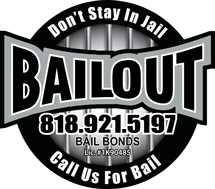
A bail bond is a financial guarantee that ensures a defendant’s release from jail until their court appearance.
A bail bondsman pays the bail amount on behalf of the defendant in exchange for a fee, typically a percentage of the total bail.
The cost of a bail bond is usually 10-15% of the total bail amount set by the court, depending on the state.
Collateral is an asset (like property or a vehicle) used to secure the bail bond in case the defendant fails to appear in court.
The premium you pay for a bail bond is non-refundable, even if the case is dismissed.
If the defendant skips their court date, the bail bondsman may be required to pay the full bail amount, and the collateral may be forfeited.
The release process can take anywhere from a few hours to a full day, depending on the jail’s procedures.
Yes, with a bail bond, you only need to pay a percentage (typically 10-15%) of the total bail set by the court.
Bail laws vary from state to state, so the cost and process can differ depending on where you are located.
Most bail bond agencies accept cash, credit cards, checks, and some may offer payment plans.
Yes, many bail bond agencies offer flexible payment plans to help clients cover the cost of the bond.
Yes, we provide bail bond services 24 hours a day, 7 days a week to assist you whenever you need help.
Collateral may or may not be required, depending on the defendant’s risk of flight and the amount of the bail.
Bail bonds can be posted for most crimes, but some serious offenses may not be eligible for bail.
Yes, we can post bail at most jails within the state or across multiple jurisdictions, depending on the location.
A bail bond remains active until the case is resolved, either by trial, dismissal, or other legal proceedings.
Yes, a bail bond can be revoked if the defendant violates the conditions of their release or fails to appear in court.
If you can’t afford bail, you may contact a bail bond agency to post a bond for a fraction of the bail amount.
If the charges are dropped, the bail bond is exonerated, but the bail bond premium paid is non-refundable.
The bail amount is set depending on the crime. There is a bail schedule that is set by jail system that will be used to set the bail amount. You can inquire at the jail or contact a bail bondsman for assistance.
No, you do not need a lawyer to obtain a bail bond, though legal counsel may be advisable for your case.
Bail is the money paid to the court to release the defendant, while a bond is the guarantee a bail bondsman provides to pay the bail if the defendant fails to appear.